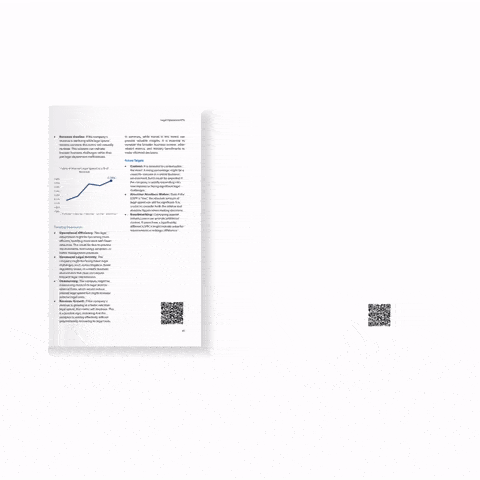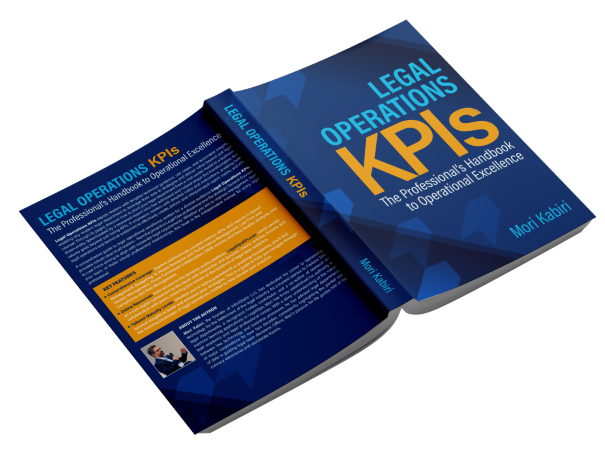Book preview
The book addresses the challenge of turning legal work into a more measurable, strategic part of the business through the use of data analytics. With a clear focus on metrics and KPIs, legal professionals with the tools to not only interpret data but also understand the decisions it supports. This is a comprehensive resource for those looking to improve performance, offering detailed metrics, reporting strategies, best practices, and practical insights that can be applied across the legal profession.

Digital Copy of the Book
Scan QR codes within the book to access enhanced content, additional templates, and join in on conversations. Transform your book into a dynamic resource for achieving operational excellence.
Just ordered on Amazon! Loving the idea, and I am looking forward to implementing that!
Thank you for the contribution of knowledge Mori Kabiri.
Legal Operations KPIs points to one of the most important challenges in my day-to-day work: understanding the efficiency and quality of our service and how we can demonstrate the value we deliver, especially through KPIs. KPIs in the legal space are often a challenge, balancing the objective with the subjective. This book offers not only practical tools to understand, calculate, and apply these indicators, but is also useful for both beginners and experts in the field.
I thought it was fabulous. Mori Kabiri. Thinking you probably sold out of books by now!
The KPIs and frameworks you’ve pulled together in the books feel like exactly the kind of shared language that helps us align expectations and make smarter decisions together.
Recommended Reading: A few days ago I started reading "Operaciones Legales KPIs" by Mori Kabiri, an essential book for everyone who (like me) is looking for new ways to align legal management with the business. You can tell it was a titanic effort, combining Mori’s vast experience with very serious academic work. Great job!
Thanks for putting together such a comprehensive book. I can't wait to dive in.
If you think about KPI within Legal - THIS IS YOUR book
In my curiosity to continue developing myself in #LegalOps topics, I found a book that is providing me with key concepts and methodical steps to optimize the management of Legal Operations, allowing Legal Departments to move from being a "cost center" to a value-generating center that delivers legal data to companies. From an innovative and practical perspective, it is reshaping the way I see legal management through data, metrics, and results, showing that lawyers can also be proactive and make data-driven decisions.
Mori Kabiri ‘s book, "Legal Operations KPIs," is an excellent starting point for understanding your operation based on quantifiable data. The book covers everything from basic visualization techniques to the information you should collect to interpret data. After reading, you may find yourself reevaluating your processes and available technology within your legal department.
Loading more testimonials...
Enjoyed these stories? Share yours!
